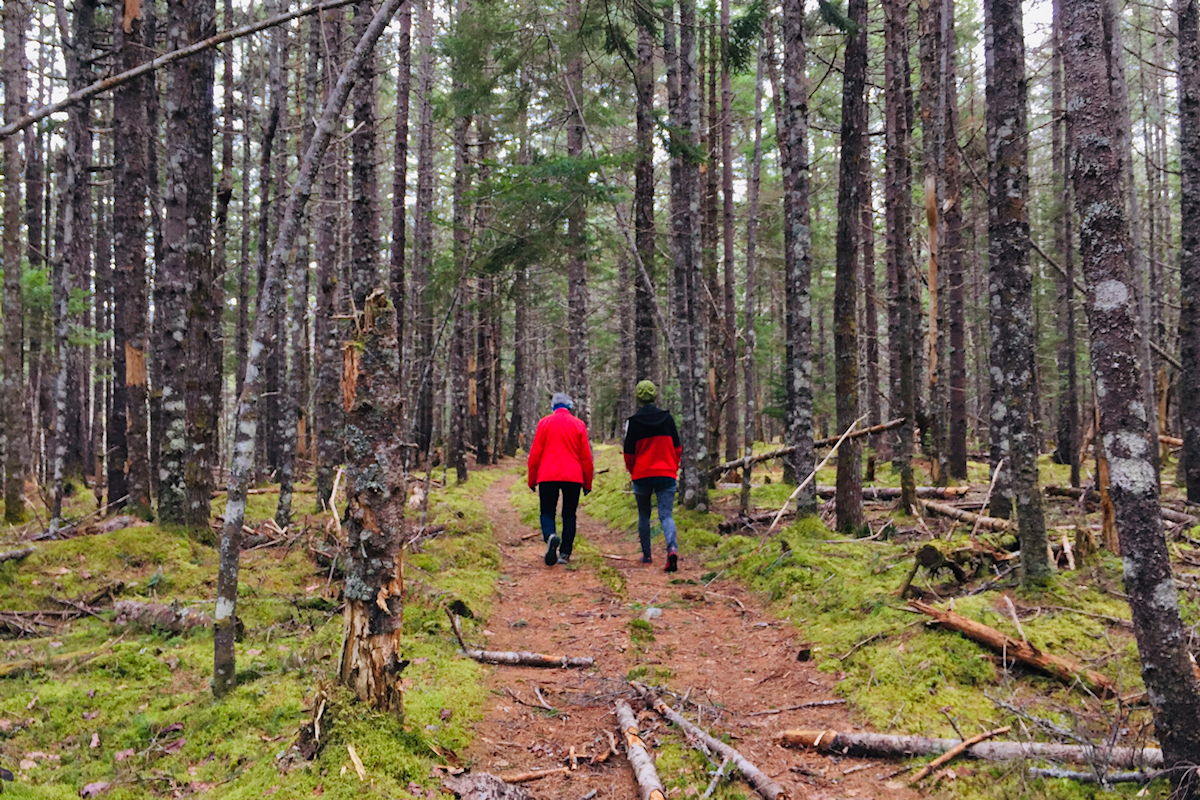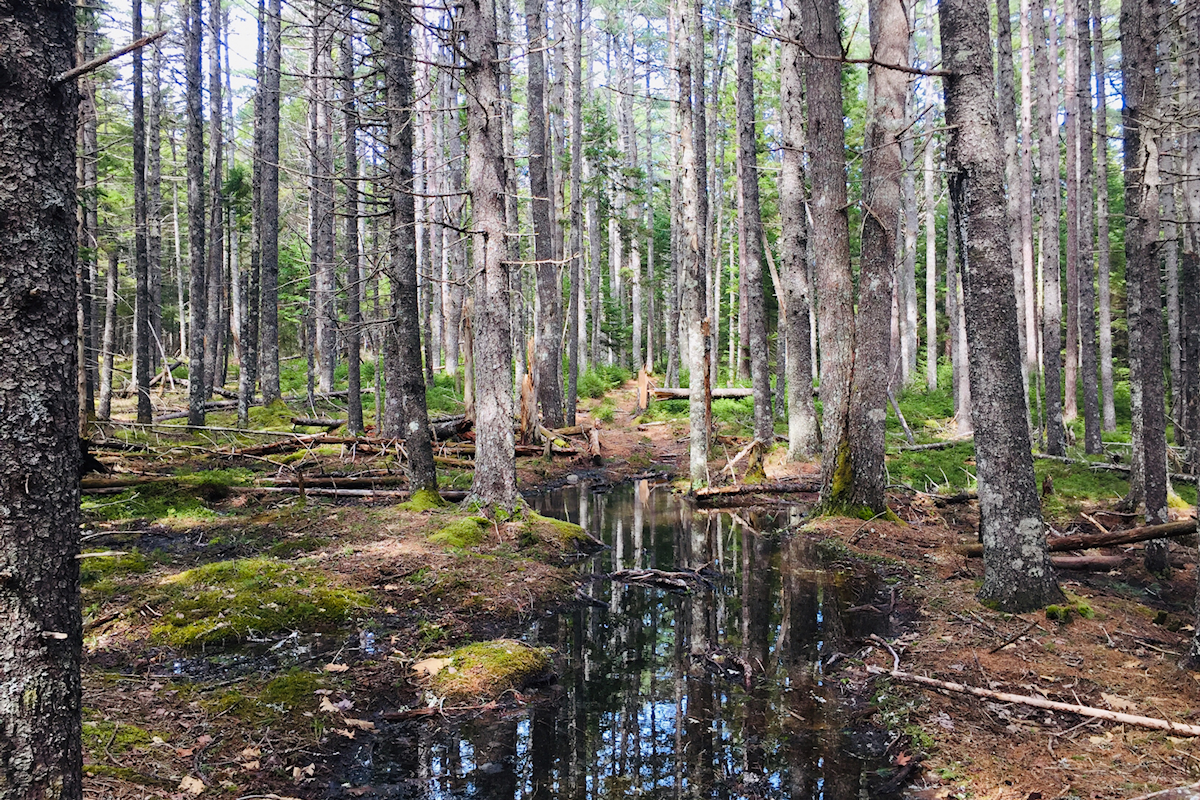Get posts by email
Living in no-man's-land
May 9, 2019
This is the fifth and final post in a series entitled Faith at the Margins.
Last month, during a meeting in opposition to Bill 21 the philosopher Charles Taylor told the gathering that
We have to make a vow of solidarity. And the vow is this: if they come against your rights, I'm in the front line. And if they come against my rights, you're in the front line.

It feels to me that the only time people are really motivated to get involved at this level, to go to the front line for someone else, is when they themselves have experienced the threat of being marginalized and minimized.
When you're always on-top, at the center, winning, you have no empathy for what it's like at the edge, on the outside.
I'm a heterosexual, middle class white woman, I'm about as center in North American society as possible. But then I'm not.
I'm not in the center of my own religious community. I'm not in the center, or even remotely near it, in how I raise and educate my children. I'm not in the center as an English-speaker in French Quebec.
If I lived somewhere else, I don't know, Portland Oregon, somewhere west, somewhere English, somewhere kind of hippy - I'd be so squarely in the middle of the belonging.
But I'm not. I live on the edges of my own society in small ways. And those small ways can make me feel insecure and limit my opportunities but they also deepen my empathy and my connection to "the other".
"You're not from here." "You're different than us." "Your rights are secondary". This is something I have felt acutely as an adult. This was not something I ever knew as a child.
The Bible says, "When I was a child, I spoke as a child, I understood as a child, I thought as a child: but when I became a (wo)man, I put away childish things."
Maybe one of the childish things that needs to be put away is a definition of belonging that does not include all, make room for all, fight for the rights of all.
My parents live in Nova Scotia and on our recent trip to visit them I passed some of the 14 hour journey listening to the book Inheritance: A Memoir of Genealogy, Paternity, and Love by Dani Shapiro. For anyone interested in stories of belonging and family, this is an amazing read (or listen).

driving home from Nova Scotia
Near the end of the book Shapiro shares this quote by Pema Chodron.
To be fully alive, fully human, and completely awake is to be continually thrown out of the nest. To live fully is to be always in no-man's-land, to experience each moment as completely new and fresh. To live is to be willing to die over and over again.
For many years I have felt I lost something from my childhood. I lost that sense of security and belonging.
In my attempt to understand my life path, to explain the inevitable sense of loss and regret with midlife, I sometimes think "maybe I made a mistake, went the wrong way." My default reaction to suffering, pain, and loss is to ask "where did I mess up?"
But I didn't take a wrong turn that landed me in a place, physically and spiritually, where I feel the pain and loss of a broken world. I grew up. I woke up. I left the nest. I landed in no-man's-land with eyes to see the truth.
What can we learn from living in no-man's-land? From being at the margin? Who can we stand with at those margins? And Like Charles Taylor asks us, Where can you be in the front line for someone else?
Going to the front line for someone else sounds a bit like being willing to die over and over again, just like Chodron says. Which takes us right back to Jesus.
To spiritually grow up, to wake up, we have to feel thrown out of the nest, displaced, like we've landed in no-man's-land. This might happen voluntarily or involuntarily. However it happens, we have to experience the margin from the outside, which is pretty much the opposite of where we, where I, want to be - securely inside.
And yet this displacement, and all the fear and longing that accompany it, is the only way we gain the necessary empathy to extend our own circles of belonging.

the woods behind my parent's house
We have to be outsiders, we have to be on the margins, we have to be on the other side of the wall to know what it's like to not belong so that we work to build families, communities, societies, nations, and religions where people do belong.
In our current political and economic world this seems like an impossible task. That's why it's called faith at the margins. Faith is the hope that what seems impossible, is possible. (As a Christian, for me that's the message of the resurrection.)
Richard Rohr says, "we live our way into a new kind of thinking".
Faith is a way of living, an action, that asserts universal belonging, a wholeness for all humans, all creation, even when so much around us seems contrary.
That intense desire to belong? Create belonging for others. That loss of leaving the nest? Make a nest for the weary. Feeling alienated? Extend an invitation of hospitality. Feeling like your rights are threatened? Whose rights can you defend?
I don't have this all figured out and most days I feel a keen lack of the courage, humility, and self-sacrifice necessary to walk this path. But even faith, maybe especially faith, is a journey not a destination. An expanding advance of love and belonging into no-man's-land.
Part of Series
You can subscribe to comments on this article using this form.
If you have already commented on this article, you do not need to do this, as you were automatically subscribed.





